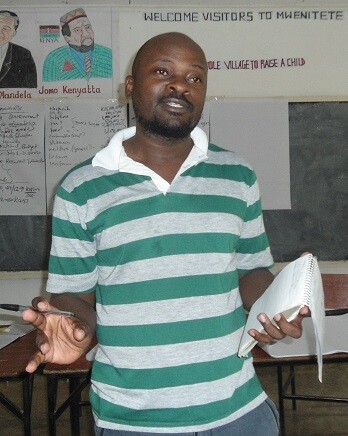
As one way of improving health service delivery in its 21 health facilities, Karonga district health office (DHO) recently carried out budget consultative meetings in the five area development committee (ADCs) to engage community leaders.
During the meetings, the DHO’s senior accountant who also acts as the council’s director of finance Tusambe Mwalilino and director of administration Clement Gonthi took their time off busy schedule and met the people on the ground to solicit views on how best they can revise the budget to meet the rising costs of commodities and the population boom.

According to Mwalilino, the district’s annual budget for Karonga DHO is K189-million for the two rural hospitals, 18 health centres and a district hospital against 365, 000 people of the lakeshore district.
Mwalilino further said that out of this annual chunk, K24-million is for drugs and medical supplies for the whole year and K8.4 million is for maintenance works and rehabilitation works for all the health facilities.
However, while thanking the DHO for the initiative of reaching out to them for views and contributions, at almost each and every gathering, all the area development committee (ADC) and health centre management committee (HCMC) chairpersons expressed their discontent over the figures mentioned as they separately said the annual amount is too little to cater for the whole district.
Speaking on behalf of Kilupula ADC, its chairperson Nelson Mwakisalu said the recent closure of Kaporo rural hospital by Medical Council of Malawi due to its poor sanitation and bad condition and the struggle by the council to rehabilitate it to have it reopened is a clear indication that the yearly monetary allocation is not enough and there is great need to revise it.
“We are grateful that this meeting was organized. We have expressed our views that the annual budget be adjusted from K189-million to at least K500-million if we are to make progress in delivery of high quality health service in our hospitals here in Karonga,” Mwakisalu said.
Concurring with Mwakisalu was Chilumba rural hospital HCMC chairperson Kiddah Munthali at a meeting held at Wasambo ADC office who said it is surprising to note that the oldest health facility in the district has one ward for both male and female patients and it does not have running water, an X-ray machine and a laundry machine due to financial constraints.
On her part, principal group village head Mponela from senior chief Wasambo said almost all health facilities in the area need guardian waiting shelters and maternity wards if safe motherhood is to be promoted in the district.
“Let me speak as a traditional leader and as a woman. Our health facilities need an upward adjustment of maintenance budget. There are so many things that need to be fixed and the K8.4-million is a joke,” Mponela said.
Asked why his office embarked on these consultative meetings days before Parliament meet for the mid-year budget review, Karonga DHO administrator Clement Gonthi said it is imperative to hold such type of meetings as they provide a platform for ordinary members of the general public to know what is in store for them in terms of budget.
Project coordinator for health governance at Open Society Initiative for Southern Africa (OSISA) funded project at Justice and Peace (JP) for Karonga diocese Olbert Mkandawire said his office facilitated the meetings to bridge the information gap that is there between the general public and Karonga DHO in terms of budget.
He said pertinent issues raised during the consultative meetings will be documented and sent to the ministry of health which will also forward the information to the National Assembly for possible consideration so that they should see if Malawi’s national health policy (NHP) is applying in our health facilities.
Mkandawire said the NHP says health facilities should be found at a radius of 8 kilometers for easy medical health access but mostly this is not the case.
“We are happy that as an institution we have managed to bring these people together. They have expressed out their views and have since asked the authorities to increase the budgetary allocation for Karonga and we feel they have valid arguments.
At JP, we will help them at all costs to make sure that they achieve their objectives and if possible our next step will be to engage all shadow members of Parliament in Karonga to sign memorandum of understandings (MoUs) on health related issues so that we hear what they have for these people in areas of health service because these problems show that the sitting Members of Parliament have done nothing to improve the same,” Mkandawire said.














